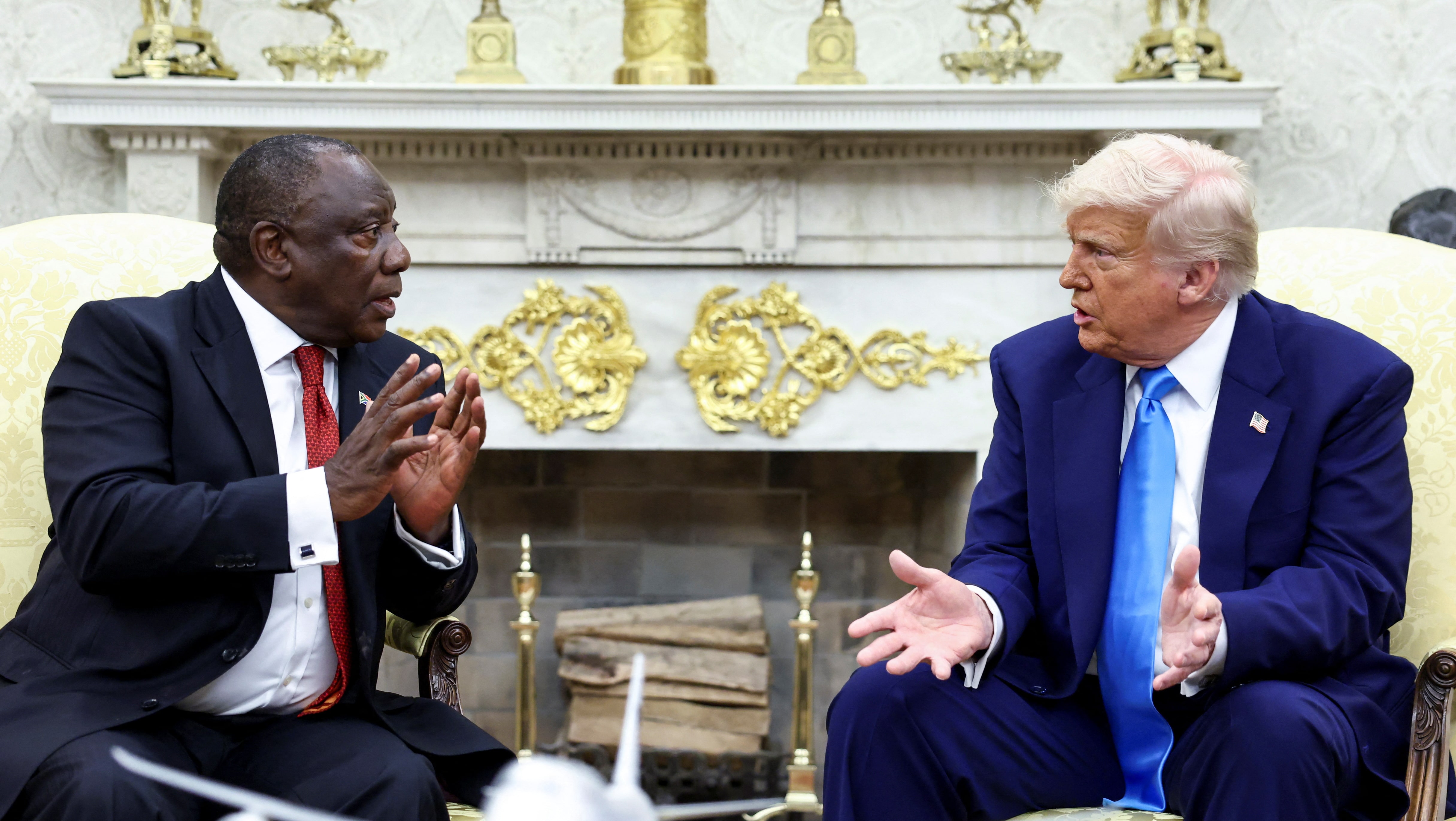Tensions flared this week between the United States and South Africa after U.S. President Donald J. Trump, during an international policy forum in Washington, D.C., made renewed and controversial claims that Afrikaners in South Africa are being “persecuted.” His remarks, made without prior diplomatic consultation, were widely perceived as an ambush of South African President Cyril Ramaphosa and have sparked strong reactions from Pretoria and international observers.
Trump’s Allegation Reopens Old Wounds
Speaking before a crowd of international policymakers and conservative leaders, President Trump claimed:
What’s happening to the Afrikaners in South Africa is nothing short of persecution. Hardworking white farmers-many of them Christian families are being targeted, their land taken, and their lives put at risk. The world cannot stay silent.
He went on to urge global bodies, including the United Nations, to “launch a formal investigation into human rights abuses in South Africa,” and hinted at possible U.S. sanctions if the “situation does not improve.”
Trump’s comments, which were not coordinated with the State Department’s Africa desk, reportedly blindsided South African diplomats and contradicted recent assessments from both the U.S. Embassy in Pretoria and multilateral institutions.
South African Government: “Baseless and Dangerous”
The South African presidency responded within hours, calling Trump’s comments “inflammatory, inaccurate, and racially charged.”
In an official statement, President Ramaphosa’s spokesperson said:
South Africa categorically rejects the false narrative being promoted by President Trump. There is no government-led campaign of persecution against any racial or ethnic group in our country.
The government emphasized that land reform policies are being carried out under constitutional frameworks, with due process and extensive consultation. “Crime and economic inequality affect all communities,” the statement added.
South Africa’s Department of International Relations and Cooperation (DIRCO) has requested an urgent diplomatic engagement with the U.S. Ambassador in Pretoria and may lodge a formal protest in Washington.
International Reaction: Divided and Cautious
Trump’s remarks drew sharp criticism from human rights organizations, diplomats, and analysts. The United Nations Human Rights Council reiterated that it had seen no credible evidence of systemic persecution of Afrikaners or white farmers in South Africa.
Some European far-right groups applauded Trump’s stance, calling it “a bold stand for Western heritage.” However, mainstream international voices warned that the president’s comments could amplify racial tensions, distort South Africa’s complex social dynamics, and destabilize sensitive regional diplomacy.
The Land Reform Context
Land reform has long been a politically and emotionally charged issue in South Africa. The majority of land remains in white ownership largely descendants of colonial and apartheid-era settlers. The government has proposed expropriation without compensation in select cases, to address historical injustices and promote equitable land distribution.
Trump’s framing of this as “land seizures” and “targeted persecution” echoes a 2018 controversy, when he made similar claims during his first term statements that were widely debunked at the time and led to a diplomatic rift.
South Africa’s Internal Unity Against External Interference
Notably, even opposition parties in South Africa have united in condemning Trump’s intervention. Democratic Alliance leader John Steenhuisen said:
While we may disagree with the ANC on policy execution, we reject any foreign leader’s attempts to weaponize race-based fear for political gain. South Africa must solve its challenges through dialogue and democratic processes.
Implications for U.S.-Africa Relations
Trump’s remarks come at a critical time, as the U.S. is seeking to counter growing Chinese and Russian influence across the African continent. Analysts say this move could undermine U.S. credibility and alienate African governments at a time when strategic partnerships are vital.
The African Union has not yet issued a formal response but is expected to deliberate on the matter at its upcoming summit in Addis Ababa.
Conclusion: A Diplomatic Crossroads
President Trump’s comments have reignited a polarizing debate, placing U.S.-South Africa relations under renewed strain and thrusting the sensitive issue of race, land, and historical redress back onto the international stage. As South Africa pushes back against what it views as interference and misinformation, the coming days may determine whether the two countries can recalibrate their diplomatic engagement or head toward a more fractured partnership.
Rayno Nel Becomes Africa’s First World’s Strongest Man Champion








